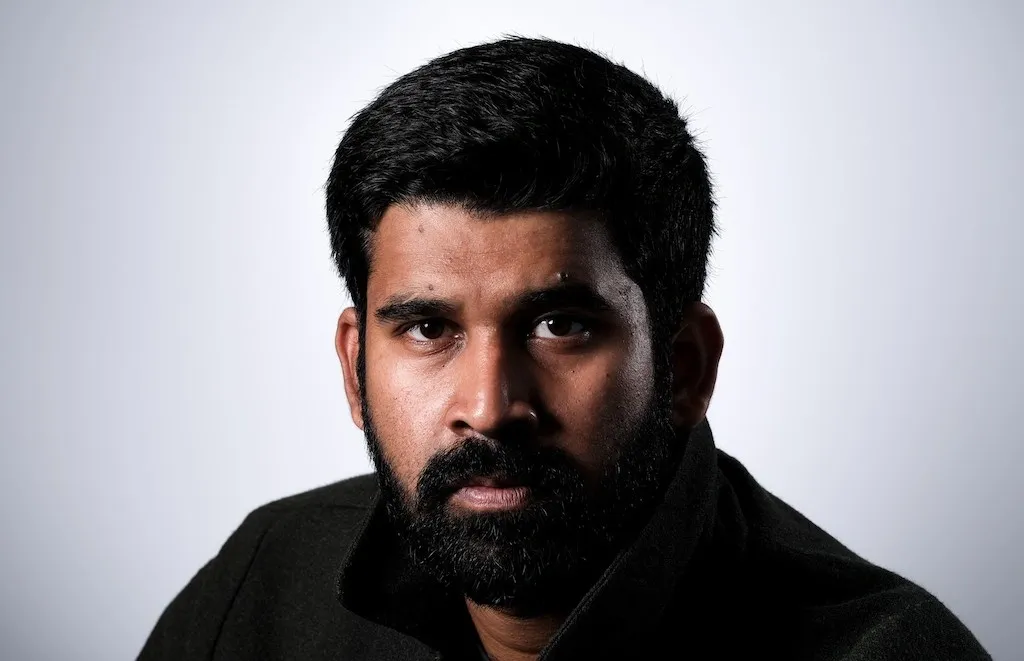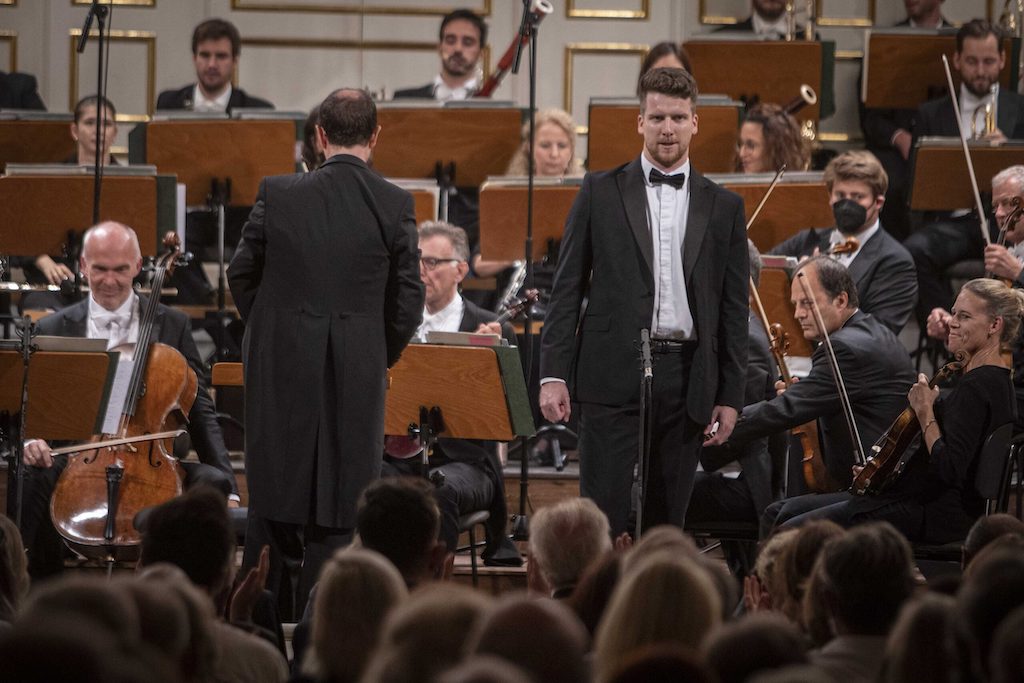Indian Roots, Global Voices: Darwin Prakash and Liam James Karai in Operalia 2024

Of the 32 singers who have recently made it to the quarterfinals of Operalia 2024 to be held in Mumbai, we speak to two with roots in India.
The excitement is palpable as the NCPA comes close to hosting the renowned Operalia competition for the first time in India. The brainchild of legendary Spanish tenor Plácido Domingo, the annual event has been the launching platform for some of the best voices in the genre since it was started in 1993.
This year’s edition, presented by Rolex, will be held from 15th to 21st September. A total of 32 participants, between the ages of 20 and 32, have been recently announced. The pre-selection jury looked at parameters like technique, timbre and musicality. As per past practice, there are no separate categories for men and women, as the idea is to choose the most promising voice. For the record, there is equal representation, with 16 men and 16 women.
Only video recordings of high quality, shot within the past year, were accepted. These recordings were to be of only two opera arias, from different operas and performed in their original language, while the conditions for the zarzuela category varied slightly. Only live piano or orchestra accompaniment was accepted and pre-recorded karaoke orchestra was prohibited.
The participants were shortlisted after a tough competition. Among female singers, there are 11 sopranos and five mezzo-sopranos. The men comprise four tenors, eight baritones, two bass-baritones and two bass.
The US has the largest representation, with eight participants, followed by Russia, with five. Ukraine and South Korea have two finalists. So does the UK, of which one—Liam James Karai—is of Indian descent. One participant, Darwin Prakash, is Indian.
While those are the broad statistics, ON Stage spoke to the two participants with Indian roots about their love for opera and their preparation for this year’s edition of Operalia.
Darwin Prakash
Baritone Darwin Prakash, who was born in Mumbai and grew up in New Delhi, is currently a member of the solo ensemble of the Staatsoper Hannover in Germany. He was the winner of the National Mozart Competition in the UK in 2019 and has been declared Premio Extraordinario at the Tenor Viñas Competition in 2021. He has also won the inaugural Gus Christie award at the Glyndebourne Festival in East Sussex.
Prakash, 31, got into serious opera rather late, in his early 20s. As a child, he loved the music in the Tom & Jerry cartoon series on TV, without realising that it included excerpts from operas by Gioachino Rossini, Georges Bizet and Johann Strauss II.
Prior to music training, Prakash studied geology at Ram Lal Anand College in New Delhi. Music lessons were expensive, and his primary source of learning was through the church choir and music societies in college. Later, he joined The Neemrana Music Foundation in Delhi, where he met his mentor, the noted vocal teacher Dr. Robert Alderson, at a masterclass in 2014.
That was the turning point. “Dr. Alderson showed an interest in my voice and encouraged me to have a few lessons with him when he was in Delhi. He advised me to seriously consider dedicating a year to train with him in the UK with the goal of auditioning and securing a spot at a major music conservatory to pursue a master’s in Vocal Performance,” says Prakash.
Dr. Alderson helped Prakash secure sponsorship to support him with living costs, studies and travel. Adds Prakash, “He generously offered to accommodate me at his residence and allowed me to use his home as a base in the UK for six months. He trained me in every aspect that was necessary and important in order to be a full-time music student.”
Prakash later joined the Royal Academy of Music, where he was under the tutelage of Mark Wildman. “Dr. Alderson was a constant support there and also during my days in Germany with the Staatsoper Hannover,” he says.
In Hannover, Prakash essayed a number of important roles, including Figaro in Il Barbiere di Siviglia and Marcello in La bohème, as Papageno in The Magic Flute, Chou En-lai in Nixon in China and Conte Almaviva in Le Nozze di Figaro. He is now looking forward to his visit to Mumbai, the city of his birth. “My aim is to absolutely internalise the music I am preparing and make sure that I am able to deliver a high-quality performance in what will be a high-pressure scenario,” he concludes.
Liam James Karai

Bass-baritone Liam James Karai, currently a member of the International Opera Studio of Staatsoper Hamburg, is of Scottish, Irish and Indian descent. His Indian connection is through his grandfather, who was Parsi, born in Mumbai and educated in Panchgani, Maharashtra.
The Hong Kong-born musician, now 26, took to classical music when he was just eight, and began with flute lessons. He was exposed to opera only at the age of 14, after hearing a singer present an aria from Bizet’s Carmen. That prompted him to take vocal lessons from her. Having moved to the UK after stints in Bahrain, Belgium and Dubai, Karai even studied banking and finance at the University of Leicester, but since he began getting many singing offers, decided to do further courses in opera.
Eventually, Karai got roles like Angelotti in Puccini’s Tosca, Count Ceprano in Verdi’s Rigoletto and Figaro in Mozart’sLe nozze di Figaro. He says, “I always find that role preparation varies but it is crucial to give it months of time. Even if a role is shorter, or in a language I can speak, I ensure that enough time is set aside to really understand the libretto, music and then find ways of expressing the character’s feelings.”
Besides the sheer opportunity of participating in Operalia, Karai is excited about two things—singing in his grandfather’s town and meeting Domingo. He says, “I will ensure that all the repertoire I will perform is in its best shape. I have been focusing on showing as many vocal colours and variations as possible.”
To keep his voice in shape, Karai does some vocal exercises every day, even when there are no rehearsals. “It makes me feel I am always on track for whatever challenge is next. In many ways, I see singing as a sport,” he says.
Interestingly, both Karai and Prakash use physical exercise as part of their routine. While Karai visits the gym, runs and plays basketball, Prakash relies on cardio exercises and yoga. They are both aware the competition will be tough but are looking forward to it.
By Narendra Kusnur. This piece was originally published by the National Centre for the Performing Arts, Mumbai, in the August 2024 issue of ON Stage – their monthly arts magazine.






